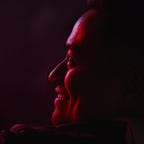Friendships were tested at the height of the 2020 Pandemic lockdown. Social distancing rules gave room for us to assess our lives and put things into perspective; what matters most. Family and friends adjusted to virtual social gatherings as a way to quell the isolation and fleeting distraction from the bleak world. We braved the new reality by showing our faces to prove to one another, but most especially to ourselves, that we are all okay. And while it was novel at first, the weeks and months went on, the fatigue in our eyes became so palpable that no amount of virtual screen-time can replace the basic need for physical interaction. We are social creatures, after all, whose lives became simplified entrenched in fear and uncertainty of the world by an unseen force threatening to take away it all.
My partner and I sensibly followed government restrictions as a due-diligence in our civic duty. Most of our friends were on the same page, and they too have battened down the hatches for the sake of ourselves and everyone around us — to flatten the curve, to help frontline essential workers keep up with climbing numbers of people contracting the disease. To the rest of us stuck in isolation and quarantine, at seven thirty on the dot, we banged pots and pants as a symbol of support and gratitude to our modern heroes. The cacophony cascaded throughout the buildings of a city in lockdown.
It is a world-wide sacrifice that continues to affect us all to this day. So we learned to deal on a daily basis, implemented face masks in our routine, sanitized and washed our hands to the point of having alligator skin, tried our best to keep afloat, stay sane, adopted hobbies that once seemed frivolous, learned to make bread to prove we have the basic ability to make it in an apocalyptic scenario. We called our mothers more than usual, a trip to the grocery store became an event. We learned to adapt to our now shrunken worlds. But eventually the weekly virtual social gatherings faded along with the symphony of pots and pans — replaced by deafening silence in what should’ve been the summer of our lives better than the last. Every single one of us partook in a Covid-birthday stripped from the excess, leaving us faced with ourselves and if you’re lucky close friends who will stick by you — six feet apart.
But some people in our circle of friends have chosen a different path of alternative truths. As the virtual gatherings became a thing of the past, they no longer had the platform to declare their new-found conspiratorial identity — leaving the rest of us disturbed. “We are sheep” for complying to the rules put upon us in our daily lives, while “they” continued business as usual; hosting indoor gatherings with other like-minded friends against government regulated restrictions.
The divide became greater, cementing our core differences at the face of it all.
The silence contradicted the misinformation sent to us across all communication platforms. One after another. Stressing the point of anti-establishment, Covid is a hoax, the “Pleiadians” will descend onto us to save earth’s future. Every incoming message triggered anxiety, that chipped away at the friendship. They were the last people my partner and I had over at our place before the shut down. I’m left to draw parallels of the sudden alienation contributed to the need to seek information online; the fertile breeding ground for conspiracy theories. Leaving one vulnerable to misinformation — manifesting mistrust into denialism. Holding beliefs with extreme conviction, defending them as part of their identity, using machiavellian tactics as a way to further their own profession — driven by ego of going against the grain. Cognitive quirks that we all have in degrees.
The pandemic has unearthed the seeds that lie underneath us all, laid bare for us to witness the kind of people each of us have become on the other side. We don’t share the same beliefs which ultimately question the Theory of Mind. The anti social tendencies of the inability to engage in a two-sided dialogue, instead, projecting self-serving bias through the command of their own life by determining the events unfolding before our eyes. Attributing the pandemic along with their own personal problems and failures to the environment by preserving the intrinsic self-worth through internal locus of control. By ending the friendship ultimately, it gave them the certainty and control in an otherwise unpredictable world. The control that feeds off of individual narcissism, the grandiose idea of the self who is more informed than others.
As we move into the dead of winter, loneliness can evolve into depression, further distorting one’s cognitive behaviours. Perhaps the friendship can come out of the silence through listening empathically with the goal of understanding.
